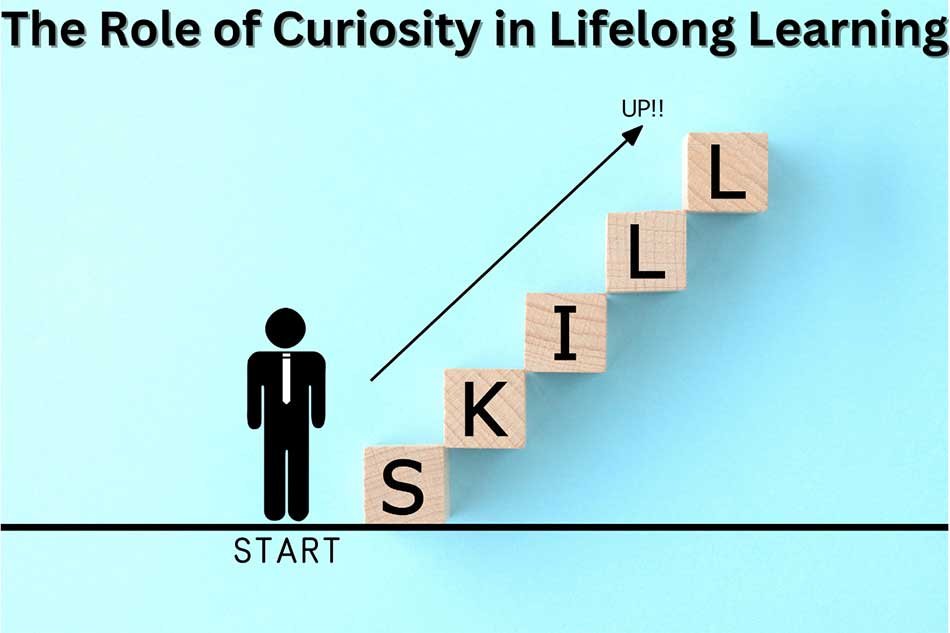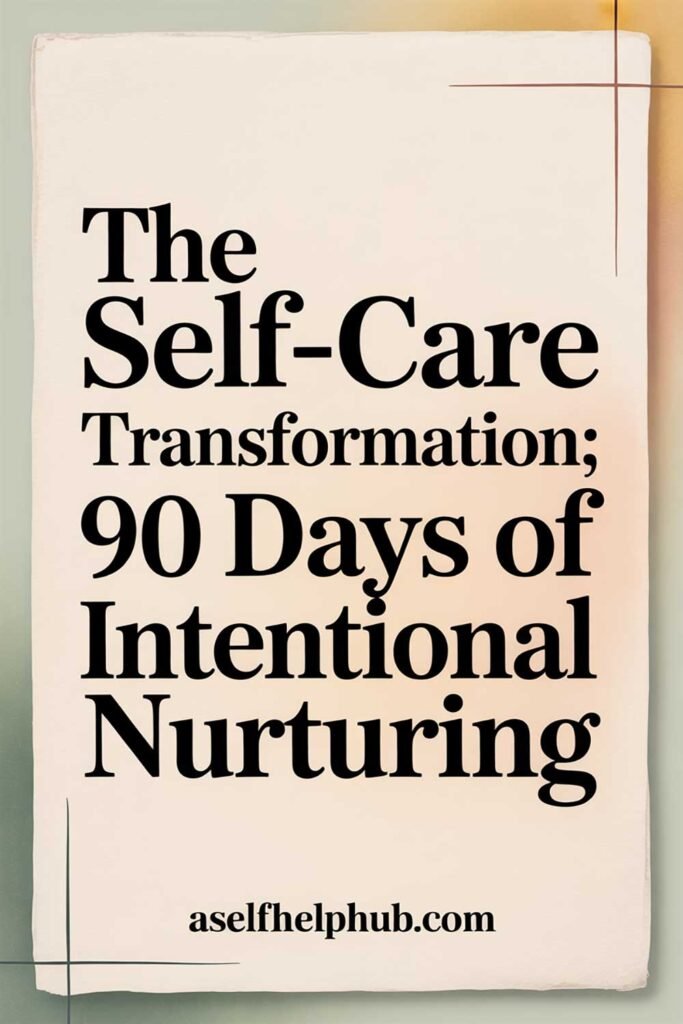
The Role of Curiosity in Lifelong Learning: Fueling Your Mind’s Endless Exploration
From the moment we are born, curiosity is our innate driving force. It’s the infant reaching for a colorful toy, the toddler asking “Why?”, and the child exploring every nook and cranny of their world. This insatiable desire to know, to understand, and to discover is not just a childish trait; it is the fundamental spark that ignites and sustains lifelong learning, propelling individuals to adapt, innovate, and thrive in an ever-changing world.

In an era of rapid technological advancement and readily available information, the capacity to acquire new knowledge is less about rote memorization and more about cultivating a deep, persistent curiosity. Those who remain curious are those who continue to grow, open themselves to new opportunities, and stay mentally agile. It’s the silent engine behind all meaningful personal and professional development. Indeed, recognizing the importance of continuous learning for career success highlights curiosity as its vital fuel.
This article will delve into the profound role of curiosity in lifelong learning, exploring why it matters, how it functions as a catalyst for knowledge acquisition, and practical ways to rekindle and nurture this powerful innate trait. This intrinsic drive is key to the role of curiosity in lifelong learning itself.
Curiosity: The Mind’s Natural GPS for Growth
Curiosity is more than just a fleeting interest; it’s a deep-seated desire for exploration that shapes our learning journey in several profound ways:
- Ignites Engagement: When you’re curious, learning isn’t a chore; it’s an adventure. You’re intrinsically motivated to seek out answers.
- Enhances Memory: Information connected to curiosity is processed more deeply and retained more effectively by the brain.
- Fosters Exploration: It pushes you out of your comfort zone, encouraging you to delve into unfamiliar subjects and perspectives.
- Boosts Problem-Solving: A curious mind sees challenges as puzzles to be solved, not insurmountable obstacles. It encourages questioning assumptions and seeking novel solutions.
- Promotes Adaptability: In a world of constant change, curiosity makes you eager to understand new trends, technologies, and ideas, keeping you relevant and agile.
- Increases Happiness: The joy of discovery and the satisfaction of understanding something new contribute significantly to overall well-being.
Without curiosity, learning becomes a passive act of information consumption. With it, every experience holds the potential for profound insight.
How Curiosity Fuels Lifelong Learning: Practical Manifestations
Curiosity isn’t just a trait; it’s a set of behaviors that can be cultivated.
1. The Power of “Why?” and “What If?”
These simple questions are the bedrock of curious inquiry.
- The Strategy: Don’t just accept information at face value. Ask “why” things are the way they are, or “what if” they were different. This pushes you beyond superficial understanding to deeper insight.
- Real-Life Example: Sarah, a graphic designer, started questioning “why” certain fonts evoked specific emotions. This led her down a rabbit hole of typography history and psychology, deepening her understanding of her craft far beyond what she learned in formal education. This spirit of inquiry also applies to diverse areas of knowledge, even learning from pop culture, by asking “why” certain trends resonate.
2. Embracing the Unknown and “I Don’t Know”
Curiosity requires humility – the willingness to admit what you don’t know.
- The Strategy: Instead of feeling shame when you encounter something you don’t understand, embrace it as an opportunity. Cultivate the courage to say, “I don’t know, but I’d like to learn.” This openness is often a transformative experience, as highlighted in why learning to say “I don’t know” can be transformative.
- Real-Life Example: Mark was a senior manager, often expected to have all the answers. He consciously started admitting when he didn’t know something, following up with, “But I’ll find out,” or “Let’s explore that together.” This shift not only fueled his learning but also fostered a more curious and collaborative environment within his team.
3. Active Listening and Observational Awareness
Curiosity isn’t just about asking; it’s about paying attention.
- The Strategy: Practice active listening in conversations, not just waiting for your turn to speak. Observe details in your environment. Look for patterns, anomalies, and connections.
- Why it Works: It sharpens your perception, allowing you to notice subtle cues and information you might otherwise miss, sparking further questions and deeper understanding.
- Real-Life Example: Emily, a writer, started taking “mindful walks” where she would actively observe her surroundings – the way light hit buildings, the sounds of different birds, the expressions on people’s faces. This practice not only made her more present but also provided a wealth of sensory details that enriched her writing.
4. Exploring Beyond Your Niche (Interdisciplinary Learning)
Curiosity thrives on venturing beyond familiar territory.
- The Strategy: Read books or articles outside your usual interests. Take an online course on a completely unrelated subject. Engage in conversations with people from different backgrounds or professions. This could even lead to discovering new income streams through home-based business opportunities you never considered before.
- Why it Works: It fosters “combinatorial creativity” – the ability to connect seemingly disparate ideas to form new insights.
- Real-Life Example: David, a software engineer, started reading books on ancient philosophy. He found that the different ways of thinking about complex problems actually helped him approach coding challenges with more creativity and a broader perspective.
5. Embracing Discomfort and Challenge
True curiosity isn’t always comfortable. It pushes you into the unknown.
- The Strategy: Seek out challenging problems. When faced with a difficult task, approach it with a “how can I figure this out?” mindset rather than avoidance. See obstacles as opportunities for deeper learning.
- Why it Works: Growth happens at the edge of your abilities. Curiosity makes you willing to step into that uncomfortable zone.
- Real-Life Example: Liam, a self-taught musician, purposely sought out pieces that were technically beyond his current skill level. He embraced the frustration of practicing difficult passages, knowing that pushing through that discomfort was how he would truly grow and expand his abilities.
6. Using Tools to Fuel Inquiry
Technology can be a powerful ally for the curious mind.
- The Strategy: Leverage search engines, online encyclopedias, documentaries, podcasts, and online learning platforms. Follow experts on social media, subscribe to newsletters on diverse topics, and explore new apps that provide new perspectives. Even something like exploring best cash back apps that pay you instantly can be a small act of curiosity leading to financial literacy.
- Why it Works: It provides immediate access to vast amounts of information and different viewpoints, satisfying and stimulating curiosity.
- Real-Life Example: Brenda encountered a complex historical reference in a novel. Instead of just skipping over it, she immediately looked it up online, then followed related links, spending a fascinating 30 minutes learning about a topic she never expected to. This small act of digital inquiry enriched her understanding of the book and the world.
The Endless Journey: Cultivating a Curious Life
Curiosity is not something you either have or don’t have; it’s a muscle that strengthens with use. The more you ask, the more you explore, and the more you seek to understand, the more curious you become. By intentionally nurturing this innate trait, you unlock a lifelong pathway to learning, adaptability, and profound personal growth.
In a world that prizes answers, dare to cultivate your questions. Embrace the unknown, follow your fascinations, and let curiosity be your guide to a life of endless discovery and fulfillment.
20 Empowering Quotes on Curiosity and Learning:
- “I have no special talent. I am only passionately curious.” – Albert Einstein
- “The important thing is not to stop questioning. Curiosity has its own reason for existence.” – Albert Einstein
- “The mind is not a vessel to be filled, but a fire to be kindled.” – Plutarch
- “Curiosity is the wick in the candle of learning.” – William Arthur Ward
- “The greatest discovery of all time is that a person can change his future by merely changing his attitude.” – Oprah Winfrey (Fueled by curious exploration of self).
- “Question everything. Learn something. Answer nothing.” – Euripides
- “Life is available only in the present moment.” – Thich Nhat Hanh (Be curious about the present).
- “It is a miracle that curiosity survives formal education.” – Albert Einstein
- “The best way to predict the future is to create it.” – Peter Drucker (Through learning fueled by curiosity).
- “The most potent weapon in the world is the soul on fire.” – Ferdinand Foch (Ignited by curiosity).
- “The expert in anything was once a beginner.” – Helen Hayes (Driven by curiosity).
- “Stay hungry, stay foolish.” – Steve Jobs (Embracing curiosity and new learning).
- “Develop a passion for learning. If you do, you will never cease to grow.” – Anthony J. D’Angelo
- “Learn from yesterday, live for today, hope for tomorrow. The important thing is not to stop questioning.” – Albert Einstein
- “Curiosity about life in all of its aspects, I think, is still the secret of great creative people.” – Leo Burnett
- “We keep moving forward, opening new doors, and doing new things, because we’re curious and curiosity keeps leading us down new paths.” – Walt Disney
- “The best investment you can make is in yourself.” – Warren Buffett (Through learning).
- “If I have seen further than others, it is by standing upon the shoulders of giants.” – Isaac Newton (Curiosity leads to seeking knowledge from others).
- “The true sign of intelligence is not knowledge but imagination.” – Albert Einstein (Curiosity fuels imagination).
- “Curiosity killed the cat, but satisfaction brought it back.” – Proverb (The reward of learning).
Picture This
Imagine your brain as a vast, unexplored library. Without curiosity, you might only ever read the same few books, or perhaps just wander the familiar aisles, never venturing into the deeper, more complex sections. Your knowledge remains limited, and the library’s true potential is untapped. Now, picture yourself as an insatiably curious explorer within that library. You’re constantly pulling out new books, flipping through unexpected genres, following intriguing cross-references, and asking the librarian (or the internet!) for recommendations you never considered. Each question opens a new shelf, each new fact illuminates another path. The more you explore, the larger and richer your mental library becomes, fueled by your endless thirst for discovery.
Share This Article
Did this article inspire you to reignite your curiosity? Share it with friends, family, or on social media to help others fuel their lifelong learning journey and unlock new opportunities!
Disclaimer
This article is intended for informational purposes only and provides general guidance on the role of curiosity in learning. Individual learning experiences and outcomes can vary. It is not a substitute for professional advice, diagnosis, or treatment for specific learning difficulties or mental health challenges. If you are experiencing significant distress or difficulties in personal development, please consult with a qualified professional or educator.






